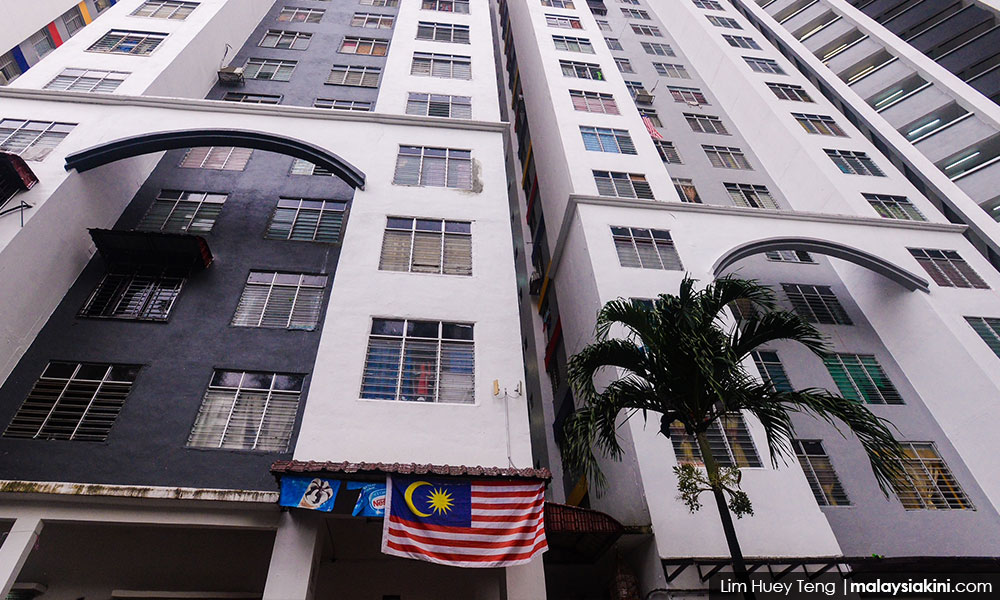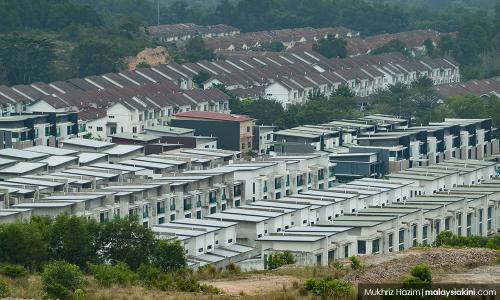LETTER | Isolate developers' business risk from purchasers
LETTER | The name used for the Malaysian Housing Development Act (HDA118) is a misnomer as the law is not about managing property development. Property development is governed by other laws under local councils and various other state laws.
HDA118 is focused on the sale process of housing products. It has to be regulated because:
Buyers signing SPA in the absence of a product.
Product quantitative and qualitative issues after delivery.
In any sales contract, core elements of any contract are selling price, manner of payments, product specifications, delivery, and warranties. In the current regulated property business environment, the subject property is absent at the point of sale. A sale is based on developer promises as stated in brochures, sales illustrations, and subsequently on what is documented in Sale and Purchase Agreement (SPA). Quite often, there is a mismatch between the delivered product and the illustrations.
Such agreements expose buyers to the risk of non-delivery or delivery of substandard products. After signing a SPA, purchasers are exposed to developers’ business risk. Purchasers have no legal rights to intervene while projects are being constructed (even if the agreed delivery date lapses). Developers (sellers) remain in control of product development and delivery and purchasers have minimal rights related to addressing product dissatisfaction upon receiving the property.
The existing HDA118 is pro-developers and it binds regulators to a level that they are unable to effectively help the purchasers. The regulator gets sucked into disputes between parties because the SPA is part of the act and subject to social pressure.
As of February 2023, about RM40 billion worth of properties (134,000+ units) are not delivered as per SPA. Less than one-third are due to business disruption related to Covid-19 and the rest are due to the developers' lack of capacity and ability to manage risk. Most of the problems occurred before the Covid epidemic. The economic impact of undelivered properties on purchasers is estimated at RM200 billion (10 x total sale value). These numbers are expected to increase further by 4Q2023.
As such, purchasers’ risk should be managed pre-emptively by having better SPAs. This is to ensure that the Local Government Development Ministry is not burdened with problematic private commercial contracts. Risk to purchasers can be minimised if developers' licenses are given as a privilege to those who have the appropriate financial capacity and technical capabilities.
By default, laws are not designed for public consumption but for regulators to regulate businesses and protect public interests. They are also used by businesses to ensure compliance. The law is not only a misnomer but a defective piece of regulation that has often failed to protect the public interest and shifted the construction problems to the Local Government Development Ministry.
Commercial developers are not social/charitable entities but profit-oriented companies. Existing regulations appear to give plenty of benefits to developers with inadequate protection for purchasers. Developers can seek many dispensations or exemptions from the housing controller and housing minister when needed.
Section V of HDA118 refers to the “Powers of the minister to give directions for the purpose of safeguarding the interests of purchasers”. Though it says it is protecting the buyers’ interest, in reality, it is about protecting developers’ interests. Section 12 limits the housing minister's power to ensure its orders are limited to and aligned with other provisions of HDA118. This means the minister's power has been curtailed and little action can be taken against developers. The minister and its officer are not free to decide on actions that they can take to protect purchasers' interests, beyond what is allowed under the HDA118.

The housing minister is empowered to issue licenses to those that do not meet the minimum requirements and Section 16 of the HDA118 allows any aggrieved developer to appeal to the housing minister. This exposes the purchasers to unnecessary political risks that lead to negative consequences. Such an appeal should be left to a committee of experts. Similarly, the housing controller's powers are specific and restricted to addressing certain matters related to HD (Housing Development) Account but are not able to force companies' beneficial owners to take remedial actions.
Comparatively, in another promise-related business ie insurance business, Bank Negara Malaysia protects the buyer's interest by having a broad-based power under Section 212 of the Financial Services Act 2013 (FSA2013). There is no difference between sell-and-built products and Insurance products. Both take money upfront and deliver their products (or services) at a much later date. Why is there a disparity between the two laws when the nature of risk is similar?
There is enough basis in justifying the need to revamp the HDA118. Priority must go towards protecting customers' financial interests. This can be achieved by making simple changes to the contract and explicitly making the HD Account a special-purpose trust account created by developers with JPN officers are the trustees. As trustees, they have full control of the funds and it remains ringfenced from creditors and liquidators.
Existing payment schedule structure can be maintained but rules on payment being released to developers must be changed. Most of the money (80 percent) is to be released to developers once related property and ancillary facilities are completed and handed over to purchasers. The remainder is released once all warranty issues are addressed. Similarly, project financiers will get their money from developers once funds are released from the HD Account.
With this approach, banks will be forced to maintain greater scrutiny of the project's progress (as they need to protect their interests). With a trust account, project financier interests are secured. Hence the expected cost increase, (as a result of delayed funding repayment) on the project financing is nominal.
For projects that run aground due to any reasons and after due diligence, trustees transfer the monies into a Consolidated Project Account (PCA) which is controlled by another group of trustees. The money in the PCA will be used for project revival and completion or refunded to the purchasers based on the technical assessment of the project. Any excess funds from completing the project and after paying customer LAD shall be returned to the developers' accounts.
The proposed measures isolate business risk from purchasers and business risk remains between the beneficial owners and its financiers. The impact on funding cost is expected to be nominal as monies are secured in the HD Account. Banks need to enhance their underwriting process when doing project funding and improve their project draw-down mechanism, to protect their interest.
By applying an Option Contract to Purchase (OCP), developers would further reduce their business risks. OCPs allow developers to exit from initiating any construction if insufficient OCP is sold. OCPs will give adequate time for the purchasers to find the optimal financing and prevent purchasers from being stuck in a purchase contract if the developers' projects are stuck and they do not meet minimal critical sales. Changes must be done to reduce political risk and impose prohibitive fines for parties that do not meet their obligations.
All these measures are necessary to ensure that the industry bred and maintain responsible developers and to restore public trust in the housing industry. A legal infrastructure that brings trust ensures good governance and integrity is good for business and strengthens the country's economy.
Buyers should be isolated from developers' business risk. Business risk should be the sole responsibility of the beneficial owners and their financiers and not the purchasers.
MOHAMED RAFICK KHAN ABDUL RAHMAN is the chairperson of VICTIMS Malaysia.
The views expressed here are those of the author/contributor and do not necessarily represent the views of Malaysiakini.
RM12.50 / month
- Unlimited access to award-winning journalism
- Comment and share your opinions on all our articles
- Gift interesting stories to your friends
- Tax deductable
